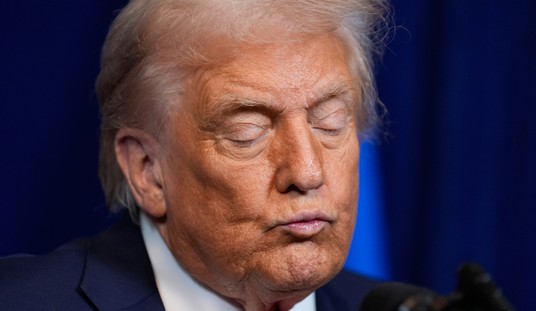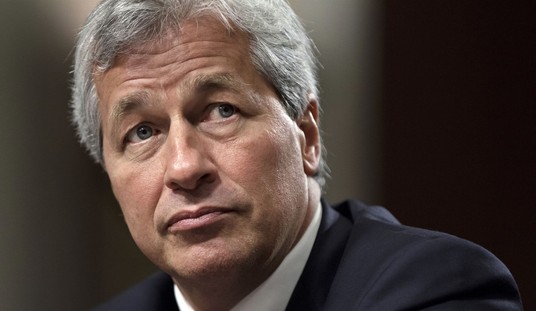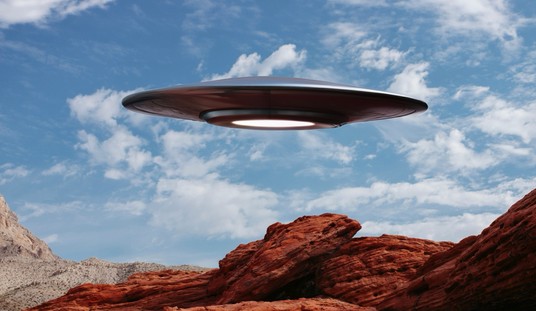With tonight’s State of the Union address we will get a preview of Barack Obama’s second term. His agenda for the four years will undoubtedly include more partying, golfing and excessive spending in Washington. Meanwhile, Americans are faced with another four years of stagnation, uncertainty and rising taxes.
The Problems We Face
Barack Obama’s Washington is broken. With an administration high on its power, looking for vengeance against the “rich,” and kickbacks for their friends, this second term is shaping up to be just as terrible for the American people as the first four years. Let’s review just why our economy is stuck in the doldrums with little hope of real recovery.
During the first four years under President Obama he has increased the debt by $5.8 trillion. That is an astonishing $50,521 per household. That’s more than the combined debt of the first 42 presidents.
Obama and his liberal allies in Washington have been at war with the energy industry, halting pipeline production, over-regulating power providers and shoveling kickbacks and special loans to “green energy” companies. As a result, Americans have seen the average price for a gallon of gasoline jump from $1.84 when Barack Obama first took office in 2009 to $3.30 when he took his second oath of office just a few short weeks ago. Coupled with the rising costs of food, utilities and increased taxes, the American family is under attack from this administration.
During the “fiscal cliff” negotiations Barack Obama and Senate Democrats insisted that the solution be “balanced,” meaning it had to include increased taxes. The argument we heard from Washington was that the wealthiest among us, those Americans who earn more than $400,000 per year, weren’t “paying their fair share” so although the Bush-era tax cuts were mostly preserved for those under that income level, those who Washington considered wealthy experienced a significant tax hike.
However, initially overlooked in the deal, and definitely ignored in the Democrats crowing afterward, was the expiration of the payroll tax cut. That tax cut in 2012 let American workers keep 2% more of their income each pay period. Although that might not seem like much, it means that many Americans now have thousands of dollars less this year than they had planned.
Joy Pullmann, who writes at Values & Capitalism and is editor of School Reform News at the Heartland Institute, said this tax hike has had a marked impact on her family’s budget.
Our family is nowhere near the top 2 percent in annual U.S. income. We’re far closer to the national median of $50,000/year. Our federal income taxes definitely went up. A lot—about $2,000. We’re already talking about how we will have to forget traveling to let the kids see their grandparents this year, and how we won’t start on finishing the basement like we had planned. We’re also talking about dropping some outside sources of income, because with higher taxes it may not be worth the stress of extra effort.
This is what happens to normal folks when you increase taxes. Money isn’t everything, but not only do significant shifts like this make it hard for us to plan, but it’s also a bit depressing, and it definitely lowers our quality of life. Lower it much further and it will impact our essential needs, like vaccines for our two babies and savings for retirement.
The Pullmann’s live in Indiana, a state that also has a state income tax. They see an additional 3.4% of their income each year go out the door, money they could use to offset some of the hit they’ve taken from Uncle Sam.
The Texas Model for Recovery
If Washington wants to solve our nation’s most pressing problems, they only need look to Texas for solutions.
Our national debt is more than $16.4 trillion and has been increasing by a staggering $3.83 billion per day in the last four and a half years. With Washington’s inability to reign in out of control spending, and Obama’s record of fiscal irresponsibility, this number only stands to increase.
We’re facing the opposite situation here in Texas.
As we began our bi-annual legislative session this month, the Lone Star State is flush with cash. We have a budget surplus of $8.8 billion and are projected to have $11.7 billion in our “rainy day fund” by the end of the 2014 – 2015 fiscal year.
That’s money that may be used for one time projects by this legislature to repair and expand our roads and help address the coming water shortage crisis in our state.
The national unemployment rate hovers near 8% but here in Texas it is only 6.1%. That’s a key level, that our national unemployment rate desperately needs to reach.
On Coffee and Markets recently, we discussed a study by Morgan Stanley which found that the broader U.S. economy may not reach 6.5% unemployment level for as long as 18 years under our current job growth rate, which seems to be the “new normal.” The Fed has said once the unemployment rate reaches 6.5% they will know that the economy is healthy enough to absorb interest rate hikes.
To reach a 6.5% unemployment rate, America must embrace some policies that we have emphasized here in Texas.
The national energy industry has been a key target of the Obama administration. Through an over-reaching EPA, they have sought to severally curb the coal industry leading to job losses and higher energy costs for some American families. The Obama administration has also denied federal permits necessary to build the Keystone XL Pipeline which would bring oil from Canada down through the midwest and into the oil refineries in Houston. The pipeline would allow us to get oil from a friendly neighbor, reducing our dependence on oil from the Middle East.
In a letter to President Obama from ten governors and Canadian Premier Brad Wall, they said the Keystone Pipeline was “fundamentally important” to the long term prosperity of the Canadian and American economies.
“With the Keystone XL Pipeline, U.S. imports from Canada, a democratic friend and ally, could reach 4 million barrels a day by 2020, twice what is currently imported from the Persian Gulf,” the letter states.
Michael Whatley, Vice President of the Consumer Energy Alliance noted recently that approval of TransCanada’s Keystone XL Pipeline could provide 20,000 jobs to the U.S. and pump as much as $20 billion into the U.S. economy.
By embracing the energy industry in Texas, we’ve reaped the positive economic effects that Obama has denied nationally.
As the taxable value of oil produced in Texas surged to $39.1 billion in 2011 from $18.4 billion in 2009, the state led the nation in employment gains, adding about 700,000 jobs, according to data compiled by Bloomberg. Oil and natural-gas drilling rigs more than doubled by mid-2012 compared with two years earlier, and the industry’s workforce climbed 9.2 percent.
If President Obama and his liberal allies in Washington would stop investing in failed green energy companies and support America’s homegrown oil, natural gas, and clean coal industries, the broader American economy could experience the same bounce that we have here in Texas.
As I noted earlier, many Americans have been hit hard by the payroll tax increase, and will soon be dealt another blow by new taxes and fees attached to Obamacare’s implementation. Adding state taxes on top of that has driven many Americans to flee high tax states like California and New York for Texas and other Southern states that have no income tax.
Texas Comptroller Susan Combs, one of the architects of the economic turnaround in the Lone Star State, noted in a Coffee and Markets interview to air Thursday, that “Capital will flee a hostile environment.” Many Americans in states across the country are experiencing exactly what Combs is talking about, but it perhaps can be seen nowhere more clearly than in New York and California.
In the first decade of the 21st century more than 3.4 million New Yorkers left the Empire State looking for better economic opportunity elsewhere. By moving south to a state like Texas, New Yorkers can keep between 9% – 11% more of their income.
Californians have followed the same trends.
Since 1990, California has lost a net of more than 3.7 million people who are fleeing to other states. According to a study by the University of Michigan which looks at U-Haul rentals as a key indicator of moving trends, there is a clear line of movement in California.
“The American people and businesses are voting with their feet and their one-way truck rentals to escape California and its forced unionism, high taxes, and unemployment rate for a better life in low-tax, business-friendly, right-to-work states like Texas.”
California has become a state that not only fails to encourage a positive growth environment but is almost openly hostile towards those Americans looking to make a better life. In fact the “Golden State” is home to the highest poverty rate in the U.S. with 23.5% of its citizens counted among the poor. That’s clearly not an environment that one would aspire to join or a place you would want to move your family.
When Caterpillar wanted to move manufacturing jobs from Japan back to the U.S., their search for a location of their new manufacturing facilities led them to Victoria, Texas. Doug Oberhelman, Caterpillar Chairman and CEO said his company chose to bring 800 jobs to Texas because it has a great workforce and “a very friendly business climate.”
More from Combs, “When you have reasonable regulatory certainty, meaning we’re not going to jerk out the rug from under you, when you know what your tax obligations are going to be, when you know you can’t be sued out of existence, those are three really compelling reasons to be here.”
American businesses are having the rug jerked out from under them by the federal government, and in many states that problem is only compounded by the anti-business policies they face. In order for our economy to truly turn around, this cannot be the case.
Something Washington continually fails to understand is that the money we send them via our taxes, is not theirs. That money, every penny of that money you and I send to the Capitol is ours. It belongs to the taxpayers.
Comptroller Susan Combs summed it up best with this. “I don’t think the feds actually respect the American individual, the American taxpayer. I think it’s basically, ‘Why don’t you sit down and shut up, we know what’s best.'”
In reality Washington doesn’t know what’s best. We do.
President Obama will claim in tonight’s speech that he has begun to turn our country around, but Americans know better. For a real economic solution, Washington needs turn their gaze South to the Lone Star State. The Texas model of balanced budgets, low taxes, and sensible management of the taxpayer’s money has allowed businesses to flourish, providing a growing job market and the kind of economic prosperity the rest of America needs.
Davy Crockett, an American legend who died defending the Alamo once said, “You may all go to Hell, and I will go to Texas.” Unless Washington can get the national economy moving again, many Americans may be saying the same thing.














Join the conversation as a VIP Member